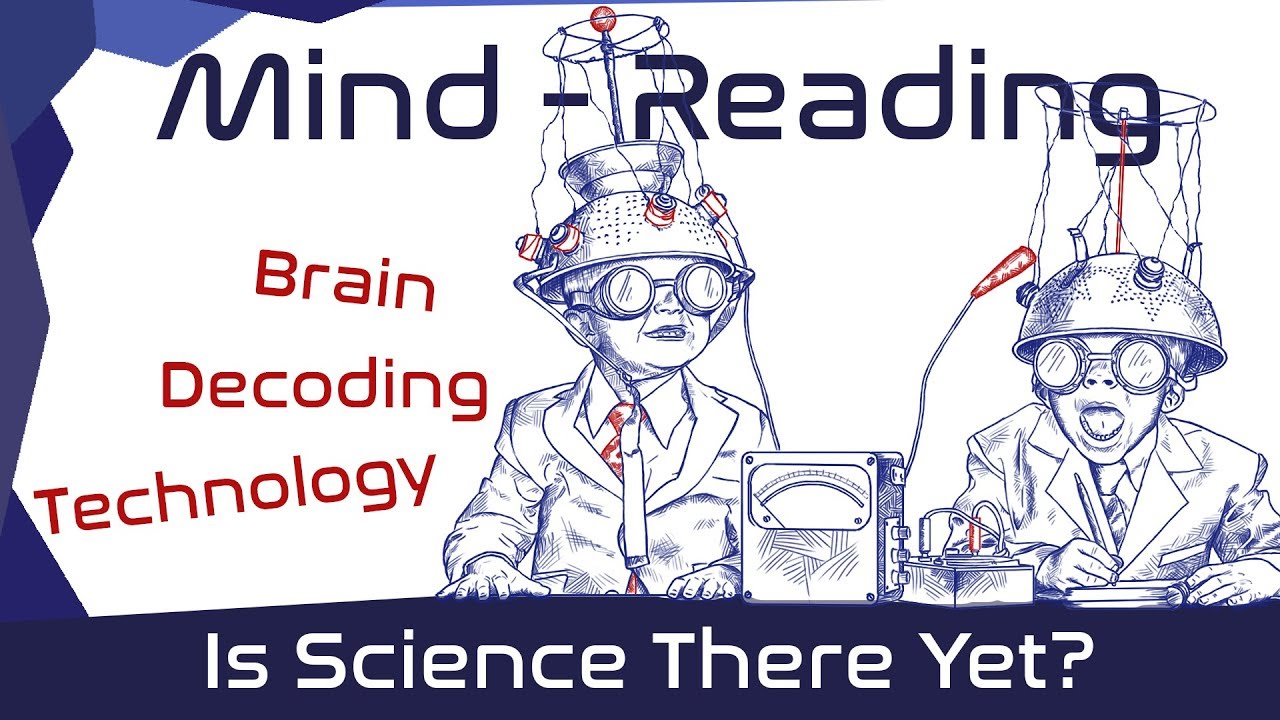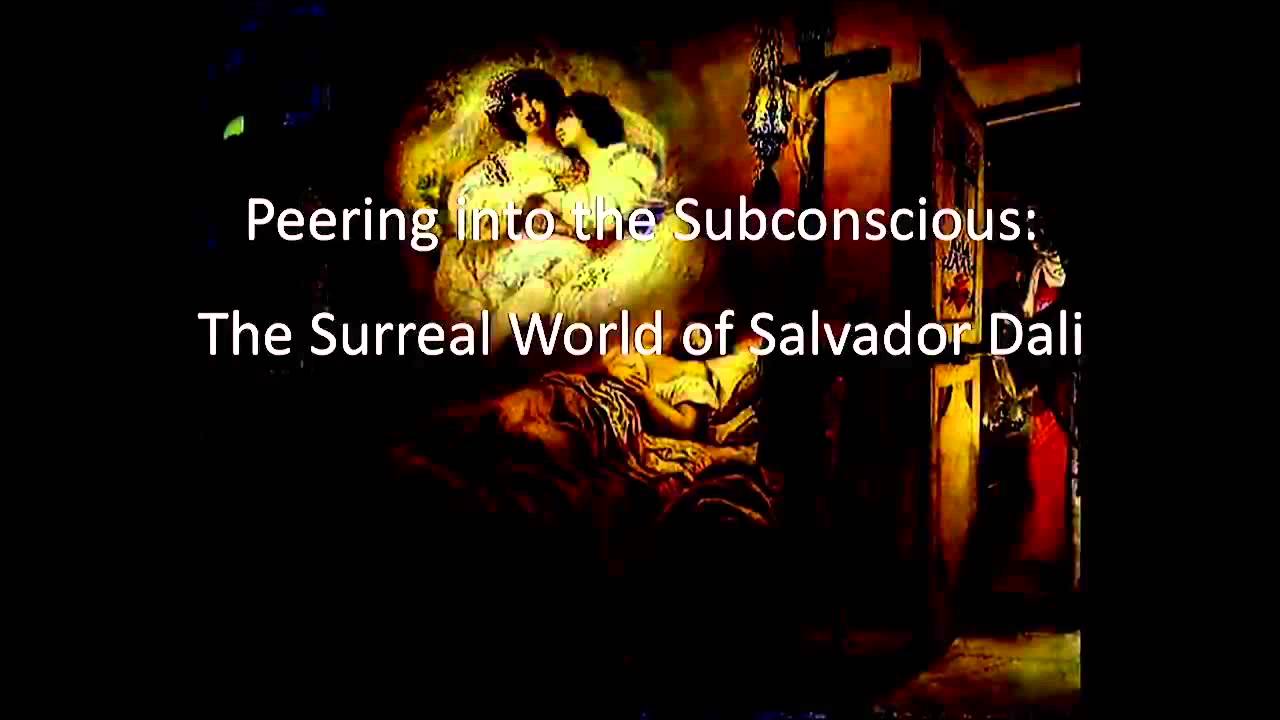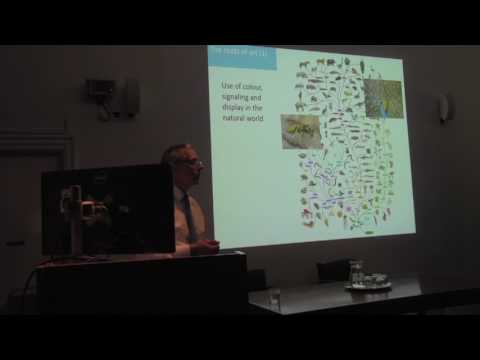Brain scientists have been on a quest to explore every depth of the human mind for ages. There have been many amazing discoveries through the years and our understanding of how the brain works has improved a lot. But just how far can the science take us? Neuroscientists around the world are using brain scans and complex machine-learning algorithms in an attempt to decipher what people are seeing and hearing as well as what they remember, intend to do or even dream about. And the results from their studies are quite intriguing!
? Check the fascinating visuals from the studies discussed in the video:
Movie reconstructions from human brain activity:
https://www.youtube.com/watch?v=nsjDnYxJ0bo
Original facial images (above) and reconstructed images (below):
https://goo.gl/KrCiLP
In this video:
1. Are our thoughts, memories and dreams are as private as we think? 0:00
2. Decoding faces from the brain 1:12
3. Other experiments related to the visual system 2:37
4. Predicting people’s actions 3:13
5. Dream decoding 3:55
6. Some problems with this method 4:25
7. Future applications 5:14
? Interested in psychology related content? Find out how our memory deceives us in our video on False Memories (http://y2u.be/INa3oCCUK60)
If you want to see more from us SUBSCRIBE to our channel: http://bit.ly/2oBn4bL and connect with us on:
FACEBOOK: https://www.facebook.com/luscid/
TWITTER: https://twitter.com/LuscidChannel
Research and script: Irina Georgieva
Art, editing and narration: Daniel Stamenov
Music: Acoustic Breeze – Bensound.com
Further reading:
[1] Reconstructing face images from evoked brain activity – original research article
https://www.ncbi.nlm.nih.gov/pmc/articles/PMC4028096/
[2] ‘Mind-reading’ scientists reconstruct human faces from brain scans
https://www.huffingtonpost.com/2014/04/01/mind-reading-brain-reconstruct-face_n_5049255.html
[3] Scientists use brain imaging to reveal the movies in our mind
http://news.berkeley.edu/2011/09/22/brain-movies/
[4] Reconstructing visual experiences from brain activity evoked by natural movies – Jack Gallant FAQ
http://gallantlab.org/index.php/publications/nishimoto-et-al-2011/
[5] Brain decoding: Reading minds
http://www.nature.com/news/brain-decoding-reading-minds-1.13989
[6] Decoding of visual imagery during sleep – original research article
https://www.researchgate.net/publication/236113471_Neural_Decoding_of_Visual_Imagery_During_Sleep
[7] Scientists decode dreams with brain scans
https://www.wired.com/2013/04/dream-decoder/
[8] Decoding our senses – video
https://vimeo.com/42863899
[9] Scientists can’t read your mind with brain scans (yet)
https://www.wired.com/2014/04/brain-scan-mind-reading/
[10] Neuroscience: The risks of reading the brain
https://www.nature.com/articles/541156a
LUSCID [your user-friendly guide to Science]
Source




What do you think about this technology, guys? Is it something to be afraid of or is it something that will benefit us, humans greatly?
I can't get enough of these drawings and animations!
Whether mind reading becomes a major problem or not depends on if they make this kind of technology available to the public when it is completed. Privacy is the big one of course. Another is that somebody could read somebodies mind and could be dramatized by their thoughts. And for the court system, somebody could either forgotten an important or pretend that what didn't happen happened. Other that mind reading could do more good than harm, and on top of the problems I listed could be fixed later on as well.
I think you summed up the current state of the research pretty well with your last few statements, but I think it's a pretty large gap between the success of these studies and what people would think of as 'Mind Reading'. Don't get me wrong, the studies are all very impressive! But with the Berkley study for instance (I think Nishimoto 2011), the computer reconstruction is limited directly to the video itself.
They're not necessarily extracting information from the visual cortex and interpreting it to get the video the participants saw, but rather they're linking activity patterns to the video (i think trying to map locations of activity to voxels in the video) and then using the activity later to play back the linked video. Basically this is only mind reading so far that you know exactly what you expect to be reading beforehand.
I'm not involved in neuroimaging research, so I can't comment on this too sophisticatedly, but I think this direction of research is limited by our current technology. MRI machines definitely lack the time resolution to be able to do anything in real-time, but we will also need finer spatial resolution as well to resolve the finer differences between neurons firing close together. As I understand it right now there's still an issue where if you see a voxel of activation in your brain using fMRI, you're still grouping together tens of thousands of neurons.
So until technology improves, I'll hold my breath on mind reading 😛
Very interesting video! I enjoyed watching.
I can live with these researches as long as we can remain individuals with own thoughts and opinions.
Concerning predicting people's actions, you should have added that:
By deciphering the brain signals with a computer program, the researchers could predict which button a subject had pressed about 60% of the time – slightly better than a random guess.
It is very important to mention that 60%, because you put it like they could predict with 100% certainty.
very well done guys. I love the topics you guys are covering!
but the way we are influenced and our thinking is guided via social media and various other things do we really have to worry about mind reading? .-.
You mentioned the criminal justice system in the end. I'm studying forensics and just recently came across a similar topic: Using the brain for identification. In fact, there are already methods to identify individuals with an accuracy of up to 100%. It's currently not used due to the often complex procedure and high costs.Nevertheless, I think it's not that far from mass suitability. Very interesting topic and phenomenal video!
Consciousness is so fucking scary!!!!!! I really dont want to think about it.
What made up consciousness?
Ofc it's easy to make consciousness (by natural) with sex. But not in scientific/artificial.
Made device for reading human thoughts /human mind reading machine /Brain computer interface. In particular, I have created a perfect Speech Generating Device for people with Amyotrophic Lateral Sclerosis /ALS. Assistive technology or Augmentative and alternative communication. About the problem look :Jack Gallant, Tom Mitchell and Marcel Just, John-Dylan Haynes, human mind reading machine.
https://www.theguardian.com/science/occams-corner/2015/apr/09/will-neuroscientists-ever-be-able-to-read-our-minds
https://spectrumnews.org/opinion/viewpoint/call-scientists-develop-communication-tools-autism
http://neurosciencenews.com/text-thought-bci-5345/.Russia.
Yeah ???
I can't believe how little following this channel has, and I thought that Facts in Motion had a small sub count compared to their content quality!
Great video as always. Professionally edited , soothing voice and great informational content. Keep up the uploads mate. You'll be a great youtuber one day.